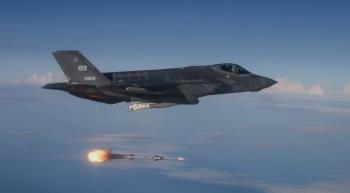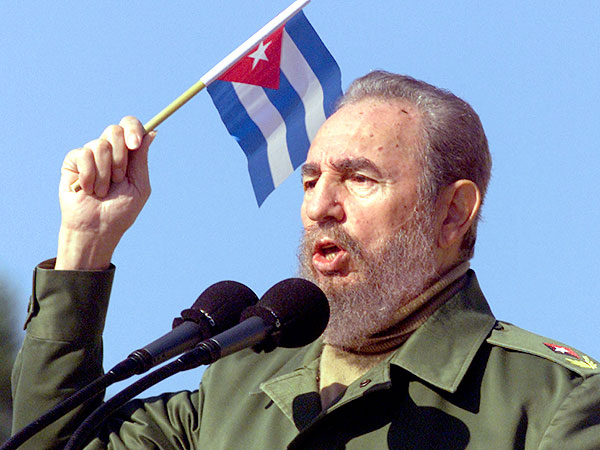Alwaght- Cuba's revolutionary leader Fidel Castro has responded to United States President Barack Obama's visit to his country last week saying that "Cuba doesn't need the empire to give us anything."
In an opinion piece for the website Cuba Debate on Monday, the iconic revolutionary figure pointed out that "nobody should be under the illusion that the people of this noble and selfless country will surrender their rights and spiritual wealth that they have won with the development of education, science and culture,” under the Cuban Revolution.
He added that Cuba can "produce the food and material wealth we need through effort and intelligence of our people."
Fidel Castro expressed amazement at Obama's call during his visit to Cuba to simply "forget the past … look to the future," and referred to the "merciless blockade that has lasted almost 60 years" and to US attacks to overthrow the revolution via "mercenary attacks on ships and Cuban ports, an airliner full of passengers detonated in midair, mercenary invasions, multiple acts of violence."
Castro dismissed Obama’s comments during his visit to Cuba as “honey-coated” and said that Cubans “ran the risk of having a heart attack on hearing these words from the president of the United States”.
The former Cuban president positively referred to Obama's "humble origin" and his "natural intelligence," but said that he shouldn't put forward "theories about politics in Cuba."
The leader of the 1959 Cuban Revolution denounced the American President’s pro-democracy remarks as “syrupy.”
"Native populations do not exist at all in the minds of Obama," Castro wrote. "Nor does he say that racial discrimination was swept away by the Revolution; that retirement and salary of all Cubans were enacted by this before Mr. Barack Obama was 10 years old."
Referring to the 1961 failed invasion of the Bay of Pigs, Castro wrote of the US “mercenary force with cannons and armored infantry, equipped with aircraft ... trained and accompanied by warships and aircraft carriers in the US raiding our country. Nothing can justify this premeditated attack that cost our country hundreds of killed and wounded."
Castro referred also to Obama's invocation of both countries' role in the end of apartheid in South Africa, remarking upon his country's 1975 intervention in Angola backing the People's Movement for the Liberation of Angola against other US-backed groups. Ridding apartheid South Africa of nuclear weapons "was not the goal of our solidarity," he wrote, "but [rather] to help the people of Angola, Mozambique, Guinea Bissau and other fascist colonial rule of Portugal."
In referring to the origins of South Africa's nuclear weapons, Castro mentioned the "help that racist South Africa had received from [Ronald] Reagan and Israel."
"I do not know what Obama has to say on this story now," Castro wrote, adding, "although it is very doubtful that I knew absolutely nothing."
"My modest suggestion is to reflect and do not try now to develop theories about Cuban politics."
Cuba "has no need of gifts" from the United States, Castro concluded. "Our efforts will be legal and peaceful, because it is our commitment to peace and brotherhood of all human beings living on this planet."
The 1,500-word letter published, titled “Brother Obama”, was Castro’s first response to Obama’s three-day visit last week, in which the American president said he had come to bury the two countries’ history of cold war hostility.
The letter also mentions environmental abuse under the Spaniards and reviews the historical roles of Cuban independence heroes José Martí, Antonio Maceo and Máximo Gómez.
The former president ends his letter with a sort of “thanks but no thanks” to Obama’s offer of assistance.
The former president, 89, did not meet Obama during the March 20 visit which was the first by a sitting US president to travel to the island nation in nearly 90 years.
The meeting between Cuba and the US presidents in Havana was seen as a step towards the normalization of bilateral relations. However, numerous issues remain before full normalization can be reached including the ending of the US blockade on Cuba and the return of the Guantanamo Bay.
Castro, who led Cuba for decades before handing power to his brother in 2008, was legendary for his hours-long, all-encompassing speeches.



























